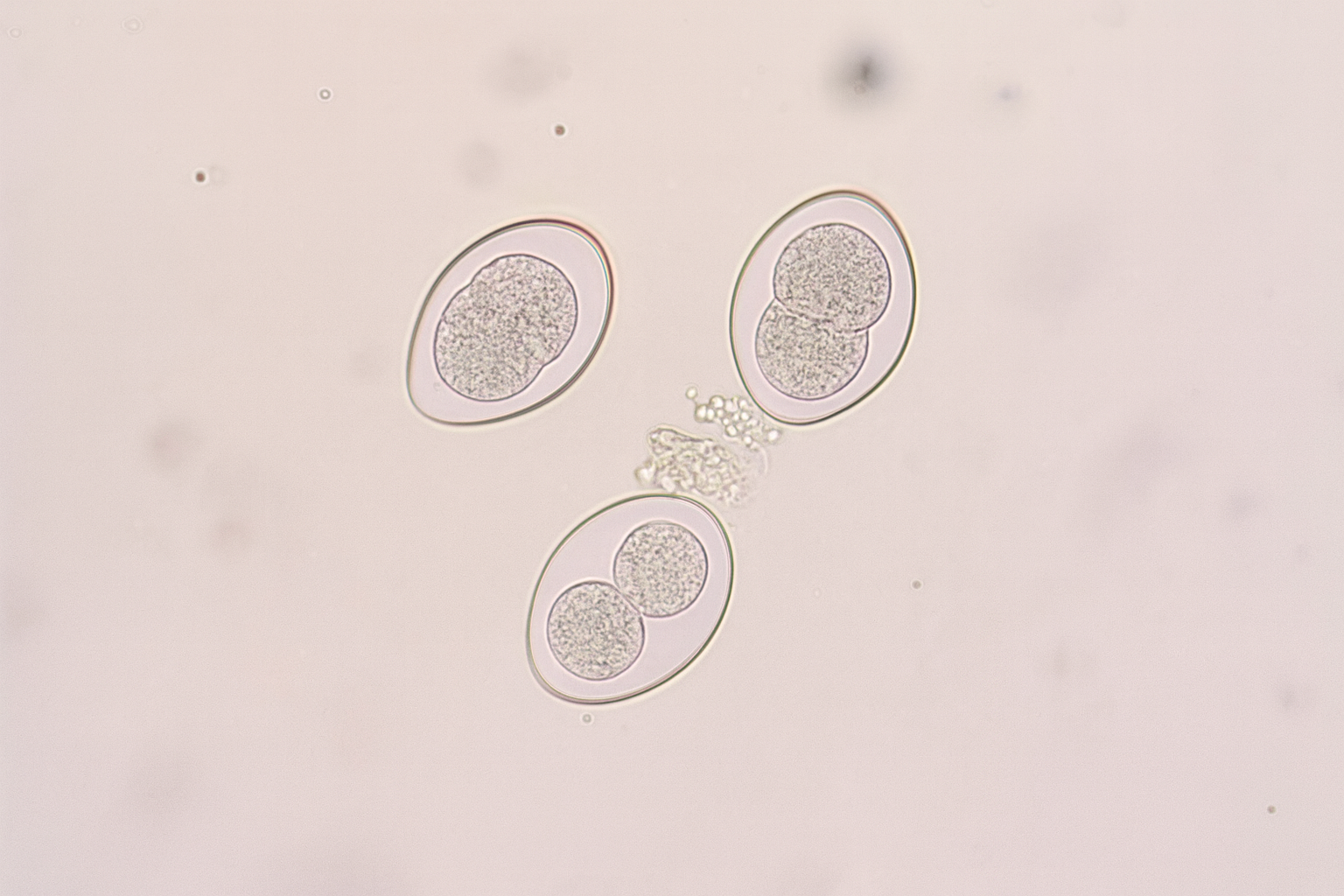Coccidia (plural: coccidiosis) are single-celled parasites that can cause temporary diarrhea, especially in young animals. The diarrhea usually resolves within a few weeks, but the eggs can remain in the environment for years and infect other animals.
Most coccidia have an intermediate host, where the parasite causes inflammation in muscles, organs, or the brain. In the final host, intestinal complaints are often noticed.
Your dog can become infected with coccidia by eating the eggs or by consuming raw meat from intermediate hosts. Unborn puppies and dogs with poor immunity can become seriously ill from a coccidia infection. In the Netherlands, the four best-known coccidia are Toxoplasma, Neospora, Cryptosporidium, and Cystoisospora.
Toxoplasma
Toxoplasma is spread through the feces of cats. A dog can contract Toxoplasma by eating cat feces or undercooked meat. In this case, the dog is an intermediate host, meaning the dog can get sick but does not spread the disease.
In most dogs, Toxoplasma causes no problems. If the dog does become ill, organs, nerves, muscles, and the brain can be affected. These issues may be permanent or even lead to death.
Neospora
Neospora caninum can cause serious inflammation in your dog's body. One in ten dogs has come into contact with Neospora, and many of them remain asymptomatic. The percentage of dogs that actually get sick from the parasite is unknown. Neospora is spread through dog feces or raw meat and can be transmitted from mother to pups in the womb. The dog is both the intermediate and final host, meaning it can get sick and also spread the parasite.
In adult dogs, inflammation of the brain may occur, leading to muscle weakness, paralysis, ataxia, a tilted head, and epileptic seizures. In puppies, symptoms start with muscle weakness and overstretching of the hind legs, followed by increasing paralysis. In both adults and puppies, the parasite can cause inflammation in the lungs, liver, muscles, heart muscle, and brain.
Cryptosporidium
Cryptosporidium is usually not dangerous for dogs. Adult dogs are often not affected, while puppies may experience foul-smelling diarrhea due to the parasite. This diarrhea can last for days or even weeks and may be accompanied by abdominal pain, vomiting, and fever.
The parasite does not need an intermediate host and can be transmitted directly from animal to animal or animal to human.
Cystoisospora
In puppies younger than 4 months, Cystoisospora is the most common coccidian parasite. Dogs can become infected through contact with other dogs or by eating raw meat.
Cystoisospora usually causes few symptoms, but in the case of serious intestinal infections, symptoms may include diarrhea, fever, loss of appetite, weight loss, dehydration, and in rare cases, death. Often, other factors such as worms, viruses, or dietary changes play a role in severe cases.
Coccidiosis can usually be diagnosed through a fecal examination. At Worm&Co, we routinely check for coccidia. If we detect a coccidia infection in your dog, we will provide you with personalized treatment advice. In most cases, symptomatic treatment and hygiene measures are sufficient.
Neospora and Toxoplasmosis can only be detected through blood and tissue testing. For this, we advise you to contact your own veterinarian. The effects of treatment are usually disappointing.
To prevent coccidiosis, good hygiene is important. Therefore, remove your dog's feces daily. Cleaning with high pressure and steam can kill the oocysts (eggs of the coccidia). Finally, do not feed your dog raw meat or organs unless they are heated above 70 °C or frozen below -12 °C. Feel free to contact our team if you have any questions; we are happy to help.
